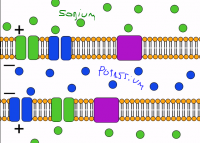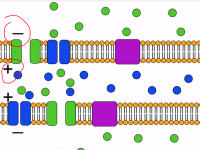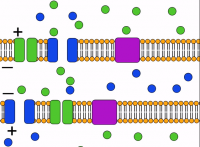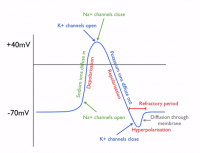Hi
@cdog ,
Thanks for your comment, it's pretty late here in montreal, so I'll be short

(EDIT: I wanted to be short, but I could not resist writing a lot lol, I am such a failure haha)
I think I already covered this question a few weeks ago, maybe this is what you're looking for:
If not we can obviously discuss more in a dedicated thread or in the private chat.
http://etd.fcla.edu/CF/CFE0001911/Soundarapandian_Mangala-Meenakshi_200712_PhD.PDF.pdf
Start reading page 3, it's not in your exact terms, but if you read it to the end, this is it. It describes the mecanism of interaction between glutamate
I picked this article because I though it was simple enough for non technical.
This is the hardcore version, it's more specific but far more complex to read:
http://www.pnas.org/content/109/21/8292.full.pdf#page=1&view=FitH
And I found this summary that is easy to understand, you can go for that, I am sure it will make you happy!
http://www2.le.ac.uk/departments/cpp/staff/dr-martine-hamann/hamann-neuroscience-group
(This is from the head of reasearch on the AUT00063 project.)
I'll make an additional comment on the action potential:
Basically when you touch your hand you feel it, the nerve is transmiting an electrical message through the spine to your brain.
This is basically the action potential, so when you hear a sound, the information is transmited to your brain in a similar fashion.
Imagine each cell (axone) is closed by a membrane (voltage gated channels):
Outside you have sodium, inside you have potassium, it's a resting state.

When you have a stimuli, sodium goes in through the sodium gate and it changes the sign, it's the depolarization

Then potassium gate open to let potassium out and change the sign again it's the repolarization

Then the sodium potassium pump evacuate the remaining sodium and the cell becomes ready for another cycle

The entire cycle looks like this:

Now what happens when you have T., the potassium voltage gates don't work very well, and don't let the potassium go out correctly, it means the sign never totally change and a continuous signal is transmited to the brain, in other word Tinnitus.
If you look at the document from dr hamann:
http://www2.le.ac.uk/departments/cpp/staff/dr-martine-hamann/hamann-neuroscience-group
This is what they are talking about, the signal become heratic, burst and shit and cannot go in rest mode.
All of this because of a defficient potassium channel: Kv3.1.
The glutamate create what we call otoxicity and this phenomenon affect the potassium channels, it's locked by platicity in a very short time (days, maybe weeks).
They proved that on chicken
 http://www.nrronline.org/article.as...olume=7;issue=9;spage=714;epage=718;aulast=Yu
http://www.nrronline.org/article.as...olume=7;issue=9;spage=714;epage=718;aulast=Yu
If a drug comes and forces the specific potassium channels to act normally, plasticity will lock in the other way and those axone will be able to go in rest mode, in other words, let you experience silence again.
Hope this help !
Now I go to bed, it's 3am and I give class tomorrow morning haha ^_^

 Member
Member






